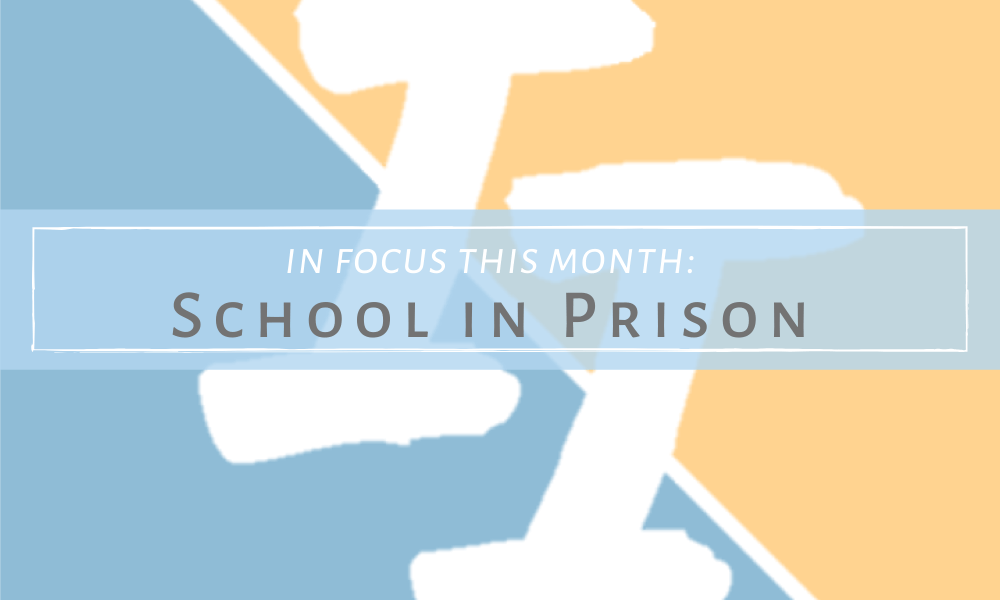What is school in prison?
School in prison offers educational opportunities for incarcerated people nationwide. Education in prison has become a vital aspect of the movement toward a focus on rehabilitative justice. In “Education Opportunities in Prison Are Key to Reducing Crime,” Kathleen Bender points out that “the vital opportunity (to an education) is currently being denied to a significant portion of the more than 2.3 million individuals currently incarcerated in the United States.” School in prison is a cost-effective way to reduce crime and that “leads to long-term benefits across the entire US population”.
In fact, a report done by the RAND Corporation shows that individuals who are given access to an educational program during their time in prison are 43% less likely to return to prison after release. Educational opportunities in prison are an integral element of prison reform and rehabilitative justice movements.
a note on language
1. Be conscious of the language you use. Remember that each time you speak, you convey powerful word picture images.
2. Stop using the terms offender, felon, prisoner, inmate and convict.
3. Substitute the words PEOPLE and RETURNING CITIZENS for these other negative terms.
4. Encourage your friends, family and colleagues to use positive language in their speech, writing, publications and electronic communications.
education by the numbers
43%
13%
Access to education in prison lowers recidivism rates by 43 percent
Access to education in prison increases the likelihood of post-carceral employment by 13 percent
Prison Education Project at WashU
The Washington University Prison Education Project (PEP) is a competitive liberal arts degree program available to incarcerated students and prison staff at the Missouri Eastern Correctional Center in Pacific, MO. PEP’s aim is to bring Washington University’s intellectual rigor and educational standards to our students in the prison. A few of the courses offered through the program include: Introductory Psychological Statistics, International Politics, Issues in Applied Ethics, Japanese Civilization, and Order and Change in Society. WashU is one of the only universities in the country to fully fund a program of this nature. PEP graduated its first set of Associate in Arts degree students on May 22, 2019. Support from Washington University’s undergraduate and graduate school students communities is vital to PEP’s success.

Registering? Consider taking these classes:
The Politics of Black Criminality and Popular Protest
(AFAS 3301) with Douglas Flowe
Women in Prison (WGSS 3171) with Barbara Baumgartner
Monumental Anti-Racism (AFAS 144) with Geoff Ward
Law, Gender, & Justice (LW 3561) with Susan Appleton
InVisible St. Louis: People, Place, and Power in the Divided City (SOC 4930) with Caitlyn Collins, David Cunningham, Patricia Heyda
Subscribe to receive the monthly newsletter and more information about Interrogating Incarceration!
Newsletter curated by:
Alia Nahra, Meg Galindo, Megan Arden, and Kennedy Young
